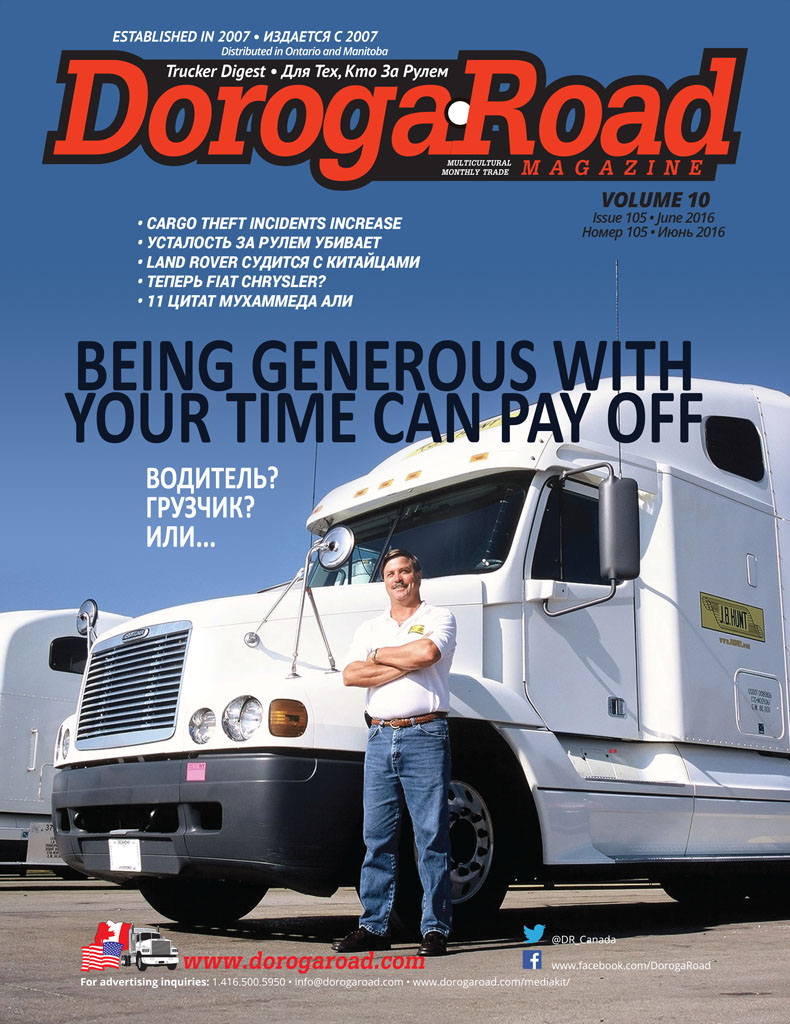...strong interpersonal relationships with shippers and receivers lead to higher productivity for the individual driver
"I'm glad it's you making the delivery today, most drivers don't offer much assistance," Clare said with a smile. That quote comes from a receiver I've come to know very well over the past several years.
He owns a small retail furniture business in southern Manitoba. I always call ahead when I deliver to him so he can arrange for help to unload his shipment.
On this day, he was short on staff leaving the two of us to get the job done. It wasn't much of an inconvenience because it was a light shipment.
Besides, over the years our relationship developed based on generosity and gratitude.
I gave generously of my time and labour and he was grateful.
In the days prior to the opening of our Winnipeg terminal, his shipment was usually the last of the day on my wagon. He would accept delivery late into the evening, being very generous with his time. In these instances it was my turn to be grateful. He respected my time and effort.
Over the 17 years I have been driving, customer service is rarely, if ever, talked about within the driving ranks.
Yet how we relate to shippers and receivers has a direct impact on our time and our trip plan.
I don't ever recall sitting in a safety meeting and having a discussion about our customers and how the drivers' one-on-one relationship with them impacts the drivers' daily life and in turn, the fortunes of the company. I've always found this odd.
I'm paid by the mile and by the drop. Why aren't we talking about how to make good use of my time? That time is totally dependent on the relationship I have with shippers and receivers. Shouldn't we be talking about those relationships and how to leverage them?
I think this topic is the Achilles heel of the trucking industry. Why? Because developing people skills and the productive professional relationships that go along with them is incredibly difficult in an environment where drivers' performance cannot be observed and coached. We have to face the fact that in the past, people skills were developed organically across the trucking industry by smaller, often family-run trucking companies. Successful customer service skills were not taught but were demonstrated to new drivers by experienced drivers and the founders of the company.
Customer service wasn't called customer service in this environment but was probably known as showing respect, hard work, commitment, generosity, etc.
These positive work attributes are known to most drivers in the industry as old-school values.
These are the foundational values that build strong interpersonal relationships with shippers and receivers – customers – and lead to higher productivity for the individual driver.
It seems that the expectation of many drivers today is that their responsibility ends when they bump the dock.
This attitude is reinforced by many large companies that recruit drivers with the tag line: No touch freight.
All you have to do is drive – your responsibility ends there. But this reinforces the short-term view of return on investment.
Personal relationships and the benefits that come along with them are not short term projects. The payoff is in the long-term.
Where I work, we deal with floor loads of commercial furniture shipped to dealers across Canada. Often I will have to deliver a load of 300-400 pieces of furniture to a single stop. On occasion, there is only one individual receiver plus myself to unload the freight. Usually there is more manpower than that, but sometimes not. Do I sit in the cab all day and wait or do I invest some unpaid time and assist?
Many drivers will not expend the effort because they are not being financially compensated for the work.
I won't disagree with that position. But what I will say is that, because I deal with these individual receivers on an ongoing basis a situation such as this presents a golden opportunity to be generous with my time and effort and earn their gratitude in return.
That gratitude and respect we have the opportunity to earn in these situations pays off in spades down the road.
When the opportunity arises for that shipper or receiver to repay the gratitude you earned with a generous act of their own, they will, making your life easier by valuing your time as something important. That, friends, is money in the bank.
But the real value I find in taking the time to invest and build relationships with people I may only see two or three times a year comes in the greeting I receive when I walk through the door.
More often than not I am greeted with a smile by people that are genuinely glad to see me.
That is priceless.









 Newspaper about
Newspaper about 